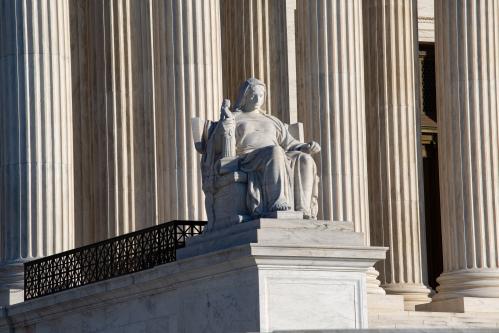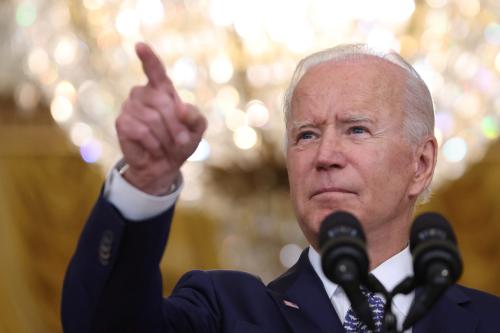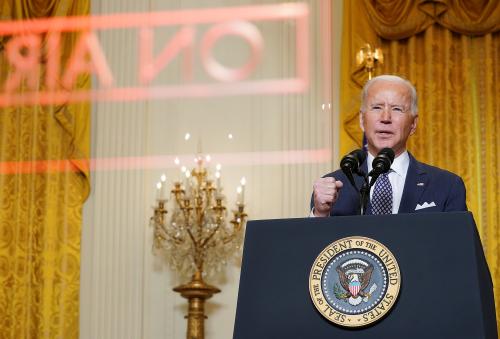Democrats praised the Biden administration’s record number of first-year appointments—the highest since the Kennedy administration—but many convey a sense of urgency about whether 2022 will end on a similar note. To say the least, it will take some doing.
The White House’s announcement of nine judicial nominees just before the Labor Day weekend and Senate Majority Leader Schumer’s scheduling cloture votes for two Biden appeals court nominees immediately after may reflect a new aggressiveness. One of the two—Tennessee’s Andre Mathis, whom both home-state (Republican) senators oppose—has waited almost ten months since his nomination, longer than any other appellate nominee.
In June, Biden’s total court of appeals and district court appointees still outnumbered those of recent predecessors. Of those predecessors, however, only Reagan had a lower percentage increase over his number of end-of-year-one appointments. As the Table 1 shows, Clinton had increased his number by 115 percent; Biden, by only 55 percent.
Things have not improved from Biden’s standpoint. As of September 8 (by when the cloture votes will have produced floor votes), his number of confirmations will trail Clinton’s and match Reagan’s. His 83 percent increase over his first year is the lowest of recent predecessors. (At this point in 1962, Kennedy had appointed 108 judges, who occupied 27 percent of the statutorily authorized judgeships then in place. Biden’s 77 are nine percent of today’s judgeships.)
One reason for Biden’s comparatively paltry early September showing is the small number of August confirmations. For whatever reasons, Majority Leaders George Mitchell and Mitch McConnell shortened the traditional near-month-long August recesses in 1994 and 2018, allowing respectively 11 Clinton and 15 Trump confirmations in August. Other recent presidents had between five and eight. Biden had two.
Democrats clearly have some catching up to do to support “most appointments” claims after two years.
Biden will obviously get more confirmations by year’s end, but to match Clinton’s 126 two-year total, he will need 49 appointments, a 64 percent increase over his end of August total. To match Bush, he’d need 23, a 30 percent increase.
There are or soon will be 62 nominees—17 appellate (excluding the two scheduled for early September votes) and 45 district nominees (one of whom has been blocked by Wisconsin Senator Ron Johnson; two others have been waiting for over 11 months). All but four of the appellate nominees have had hearings but only 14 district nominees have.
Whether Biden can get 49 confirmations in the rest of the year—six more than Clinton’s 43—depends partly on how fast the Senate can process them. Things moved more quickly in the 1990s. The median days—nomination to confirmation—for Clinton’s 37 district judges post-August was 56—and in a Senate with a 57-43 Democratic majority. It was 85 days for his six appellate confirmations. So far it has taken 134 and 113 median days respectively to confirm Biden’s district and circuit judges.
On the other hand, the Senate in 1994 adjourned on December 1 and stopped confirming judges in October, prior to the midterm elections, which created a 52 Senate Republican majority. In 2022, however, if the Democrats retain their majority, they will probably keep confirming after the elections. Even if the Senate has a Republican majority in 2023, though, there is now precedent for lame-duck confirmations in 2022, namely the 14 Trump nominees that the Republican Senate confirmed in November and December of 2020, after Trump lost the election.
Any such lame-duck confirmations will also be last hurrah confirmations. The process will grind to a snail’s pace if Republicans have a Senate majority in the 118th Congress.
The Brookings Institution is committed to quality, independence, and impact.
We are supported by a diverse array of funders. In line with our values and policies, each Brookings publication represents the sole views of its author(s).










Commentary
Likely prospects for Biden’s two-year judicial appointment total
September 6, 2022